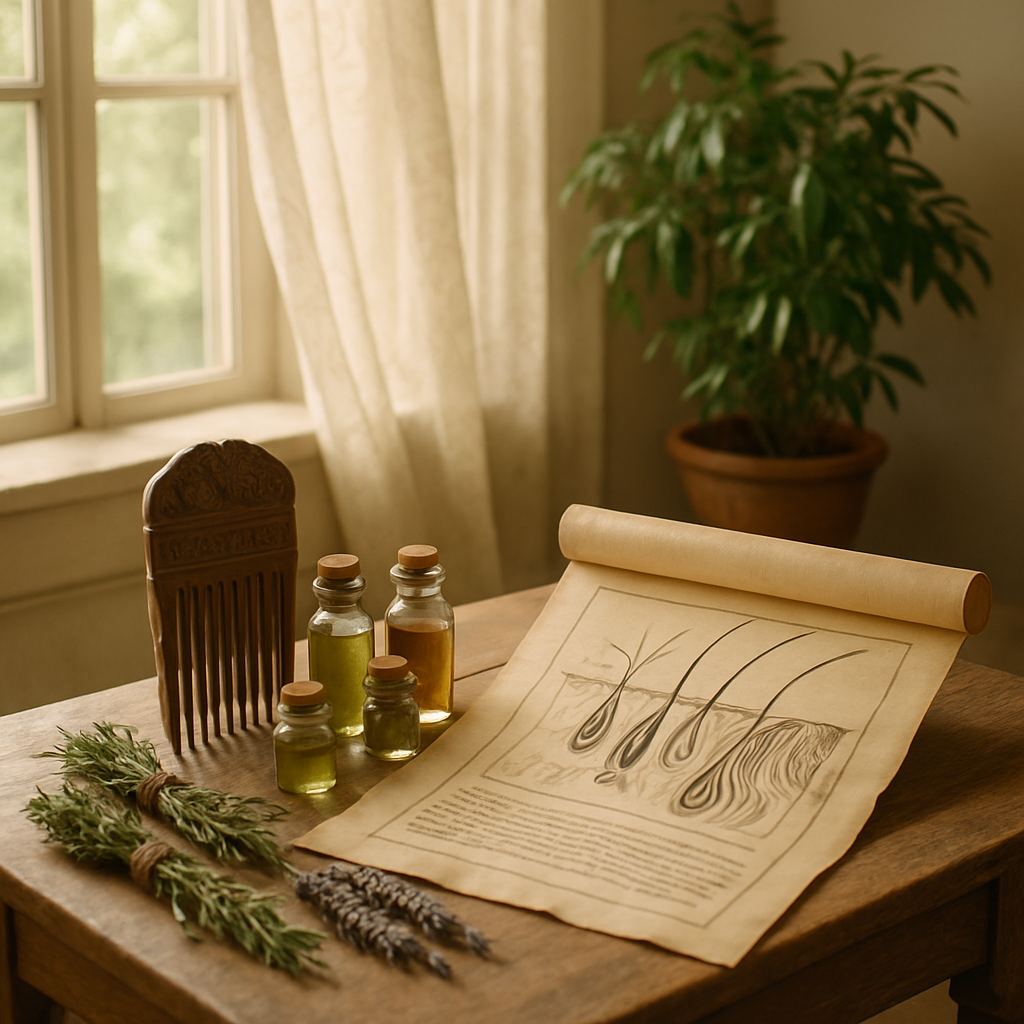Unlocking the Secrets of Hair Growth from Ancient Traditions

Hair growth has fascinated humans for centuries, and it’s not just about vanity or beauty standards. There’s something inherently mysterious about the way hair behaves sometimes growing like weeds, other times stubbornly refusing to sprout. This intrigue has led cultures from around the world to develop their own unique rituals and remedies, many of which still hold sway today. It’s a bit like opening a time capsule, peeking into how our ancestors dealt with the same hairy situations we face today.
Throughout history, the quest for luscious locks has inspired countless concoctions, each promising the key to flourishing hair. From the exotic oils of ancient Egypt to the herbal infusions of traditional Chinese medicine, these methods offer not only practical solutions but also fascinating insights into the cultures from which they originate. And let’s face it, who wouldn’t want to borrow a tip or two from Cleopatra or Confucius?
Ancient Egyptian Hair Secrets
The ancient Egyptians, with their love of beauty and detailed grooming routines, were pioneers in hair care. They were obsessed with cleanliness and appearance, often using scented oils to maintain their hair’s health and shine. Their go-to was castor oil, which was believed to stimulate hair growth and add gloss. Imagine Cleopatra, reclining in a bath of milk and honey, while her attendants massaged her scalp with warm castor oil. Whether it was her beauty or political acumen that left such a mark on history is up for debate, but there’s no denying she had fabulous hair.
Castor oil’s benefits, by the way, aren’t just old wives’ tales. Modern science backs this up; it’s packed with ricinoleic acid, which helps balance the scalp’s pH. This can reduce dandruff and promote a healthier environment for hair growth. So, while you might not be ruling over a kingdom, applying castor oil a couple of times a week might just help you reign over your own hair issues.
The Wisdom of Ayurveda
Shift the focus to India, where the ancient system of Ayurveda has been guiding health and wellness practices for thousands of years. Hair care, according to Ayurveda, isn’t just about what you apply to your strands but also about what you put into your body. The balance of the three doshas Vata, Pitta, and Kapha is crucial. I remember a particularly insightful conversation with Dr. Pratima Raichur, an acclaimed Ayurvedic practitioner, who stressed the importance of diet in hair health. She convinced me to try incorporating more almonds and sesame seeds into my diet, claiming they nourish the scalp from within. Did it work? Well, my hair certainly felt softer, but maybe that was just the power of suggestion. Or perhaps the magic of roasted almonds.
Ayurveda also champions the use of herbs like Amla (Indian gooseberry) and Bhringraj, touted as “the king of herbs” for hair growth. Bhringraj oil is said to prevent hair fall and even reverse grey hair. Now, I haven’t turned back the clock on my greys, but the calming scent of Bhringraj oil on a Sunday evening does wonders for my stress levels. It’s like a mini-spa session, minus the hefty price tag.
Traditional Chinese Medicine and Hair
In China, hair health has long been linked to kidney energy according to Traditional Chinese Medicine (TCM). If the kidneys are strong, hair is said to flourish. Black sesame seeds often take center stage in this narrative. I once tried a homemade sesame paste, a TCM recommendation, during a particularly hair-raising episode of thinning hair. The paste tasted like a nutty dream, but truth be told, the results on my hair were less immediate. Still, there’s something comforting in adopting these age-old practices, even if the effects are more about ritual than rapid transformation.
TCM also involves acupuncture and the use of specific acupressure points to stimulate hair growth. I haven’t personally gone under the needle for my hair, but a friend swears by her acupuncturist’s magic touch. Her hair does look fantastic, though, so maybe there’s something to it.
The Mediterranean Approach
Then there’s the Mediterranean approach, which is as much about lifestyle as it is about specific treatments. Olive oil, rich in antioxidants and fatty acids, has been a staple since the days of ancient Greece. It’s said that olive oil not only moisturizes hair but also protects it from environmental damage. I once got a tip from a hairdresser massage warm olive oil into your scalp, wrap your hair in a warm towel, and let it sit for an hour. The result? Softer hair and the delightful scent of an Italian kitchen. Bon appétit!
These Mediterranean traditions also emphasize the diet rich in fish, fruits, and vegetables which provides the essential nutrients for hair health. It’s like a holistic approach to beauty, and considering how great the food is, it’s a win-win.
A Few Modern Reflections
In our fast-paced world, these ancient secrets might seem like a luxury or even a quirky indulgence. But they remind us of something crucial: beauty and health are deeply interconnected. Sure, today’s shampoo bottles promise miracles at the press of a pump, but there’s a peculiar satisfaction in taking the time to whip up a homemade hair tonic. And let’s be honest, how many times have we fallen for slick marketing only to find our hair as lackluster as ever?
Now, don’t get me wrong I’m not suggesting we all throw out our conditioners and head to the fields to pick herbs. But maybe, just maybe, there’s value in blending the old with the new. A bit of castor oil here, a sprinkle of almonds there, and perhaps a dash of olive oil for good measure.
Hair, like life, is unpredictable. One day it’s full of bounce, the next it’s flat as a pancake. Maybe it’s not about finding a foolproof solution but about embracing the journey. After all, if Cleopatra, with her castor oil, and the wise practitioners of Ayurveda got anything right, it’s that the quest for hair health is as much about the process as it is the outcome. And who knows, perhaps the secret to great hair was never really a secret at all just a blend of patience, tradition, and a little bit of experimentation.


